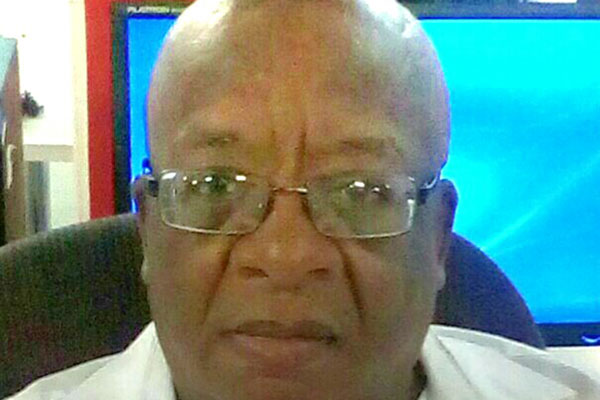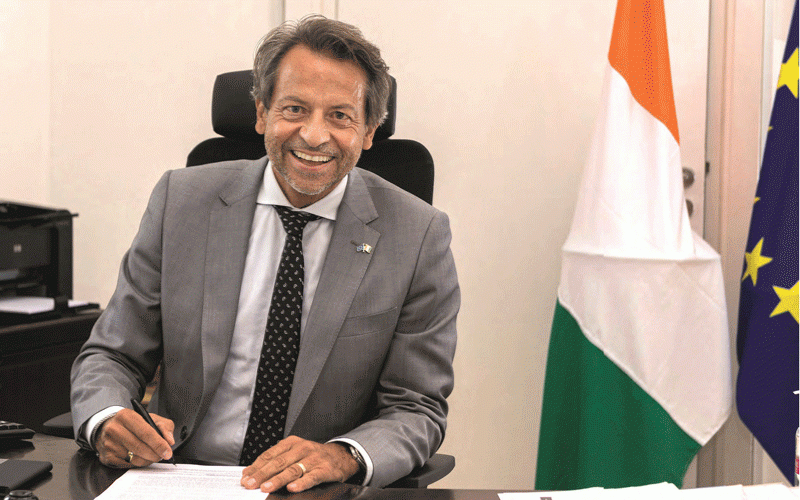
Echoes: CONWAY TUTANI
The death of Robert Mugabe, the only Executive Prime Minister and only Executive President that Zimbabwe had known since independence in 1980 until 2017 —all of 37 years — has shown that he was not as unpopular as the narrative in some political circles, academia and media sections made him out to be.
One of the main reasons why so-called thought leaders — as they immodestly self-style themselves — get it so monumentally wrong much of the time is because they don’t factor in the element of paradox in individuals and whole communities, where apparently contradictory values and positions can exist side by side in harmony — like you don’t have to like everything about someone to appreciate them. And I am seeing this in the glowing and growing tributes pouring in for Mugabe from people who before his death were reviling him as the devil incarnate, showing while many people celebrated his stepping-down, they still had a place in their hearts for him.
These ”experts” get it wrong mainly due to the fact that they are trained to be straight-line thinkers where everything must go by its logical sequence and make complete sense. And many of them, having become opposition activists, have lost that professional detachment which enables objective, valid and usable analysis, making them fail to predict, for instance, Zanu PF victories in the recent by-elections despite the economic turbulence; and after being proven wrong, attributing the wins to electoral chicanery even where there is nothing of that sort. Another paradox that stands out is Matabeleland. Going by recent voting patterns — including the 2018 general election results and subsequent parliamentary by-election results in Lupane East and Mangwe plus one urban and several rural council poll outcomes held this year — Matabeleland is becoming a Zanu PF stronghold, despite Mugabe being accused of ordering the killing of about 20 000 civilians between 1982 and 1987 during the infamous Gukurahundi.
Academics can write tomes and tomes about Mugabe, but unless and until they unpack this Matabeleland paradox effect fully without giving the now banal and tired excuse that Zanu PF wins solely due to voter intimidation and vote-buying, their findings will remain irrelevant, invalid and unusable — the same way there is a glaring disconnect between their assessment of Mugabe and that of the nation at large.
Indeed, Mugabe had that capacity to confound and confuse people. You did not know which Mugabe would turn up. You would not know whether he was coming or going. He would cause surprise among people and wrongfoot them by not acting in accordance with their expectations. That manipulative bent, instinct or penchant gave him immense power over people, which power he would readily abuse until it had a corrosive effect on the economy. The economy was so devastated that it had to be rescued by dollarisation — which dollarisation steadied the ship, but brought its own distortions as it was not accompanied by increased productivity and responsible spending at both government and individual levels. The vital question ”After dollarisation, what next?” was not asked as the nation basked in the false security of the greenback and people lived it up as if there would be no tomorrow. Now we are facing the pain, the unavoidable pain, of realising that we were, after all, not that rich.
Mugabe was also a master of feigning and feinting — until age caught up with him, as it does with everyone who lives long enough to get to 90 years and above. Now, even in death, he is still confusing and confounding people with the burial arrangements going back and forth. In that vein, it’s patently insincere, false and dishonest to claim Mugabe died from the stress of being ousted from office when the record shows that he had been flying to Singapore for medical treatment over the past 15 years or so — and those people or, more appropriately, hypocrites mostly in the opposition and from the vanquished Zanu PF G40 faction such as Jonathan Moyo along with compromised ”experts”, now saying he died from stress, were themselves heavily criticising Mugabe for being treated outside the country. People should not stoop that low to make political capital from death.
In that mix, some want to paint Mugabe as a victim, but losing a power struggle is not the same as being victimised. Losing does not make one a victim.
- Chamisa under fire over US$120K donation
- Mavhunga puts DeMbare into Chibuku quarterfinals
- Pension funds bet on Cabora Bassa oilfields
- Councils defy govt fire tender directive
Keep Reading
Some people are now saying Mugabe was better than President Emmerson Mnangangwa, but had Mnangagwa’s faction lost the Zanu PF power struggle to G40, those very same people would be on Mnangagwa’s side as we speak because Mnangagwa would not pose a direct threat to them as he would be out of the way.
That is why we should disregard self-serving similar comments from the like of self-exiled former Cabinet minister Patrick Zhuwao that “Mugabe died a bitter man after being ousted”.
Does Zhuwao also take into consideration that Ndabaningi Sithole, Joshua Nkomo, Wilfred Chimhanda etc could also have died bitter men after being shoved off by his uncle Bob? Give us a break. Whether it’s a military coup or palace coup, politicians everywhere push each other out. That’s the rough and tumble world of politics. No time and no place for crybabies. So bitterness is neither here nor there. Bitterness does not come into it. Even in business, they have boardroom coups and hostile takeovers.
Yes, Mugabe could have people eating out of his hand; he could have people completely under his control — and he knew he had that power and would use it to the max, to the extreme. And to boot it, he did not only command power, but that power also came with attitude — defiant, aggressive and unco-operative behaviour.
And that defiant and uncooperative attitude was viewed globally live on TV on November 20, 2017 when he refused to resign under pressure and defiantly signed off with ”Asante sane” (Thank you very much) instead of saying: ”Farewell thee well.” Few people knew themselves better than Mugabe.
However, the West which routinely demonised Mugabe does not fare any better than him. Yes, Mugabe would abrogate the powers of Parliament, so did UK Prime Minister Boris Johnson suspend Parliament last week so as to bypass the legislature after his Brexit plans had been rejected by MPs.
Yes, Mugabe resorted to disenfranchisement to suppress votes against him, but so does it happen in the United States, a country that prides itself on its elections as super free and fair. Widespread voter suppression — particularly against historically marginalised groups, such as blacks — is a reoccurring problem in the US. Yes, Mugabe scandalously amnestied the two CIO agents jailed for the attempted murder of the then Gweru mayor Patrick Kombayi in 1990.
But here we are in 2019 with US President Donald Trump pardoning US soldiers jailed for killing Afghan and Iraqi civilians. Yes, there has been torture in Zimbabwe, but at least it’s not legalised as in the US. The list is long.
Thus, in the whole scheme of things, if Mugabe was a monster, he was not the only one. Let’s be fair to Mugabe — that would be the greatest tribute we can pay to him.
Conway Nkumbuzo Tutani is a Harare-based columnist. Email: nkumbuzo@gmail.com











